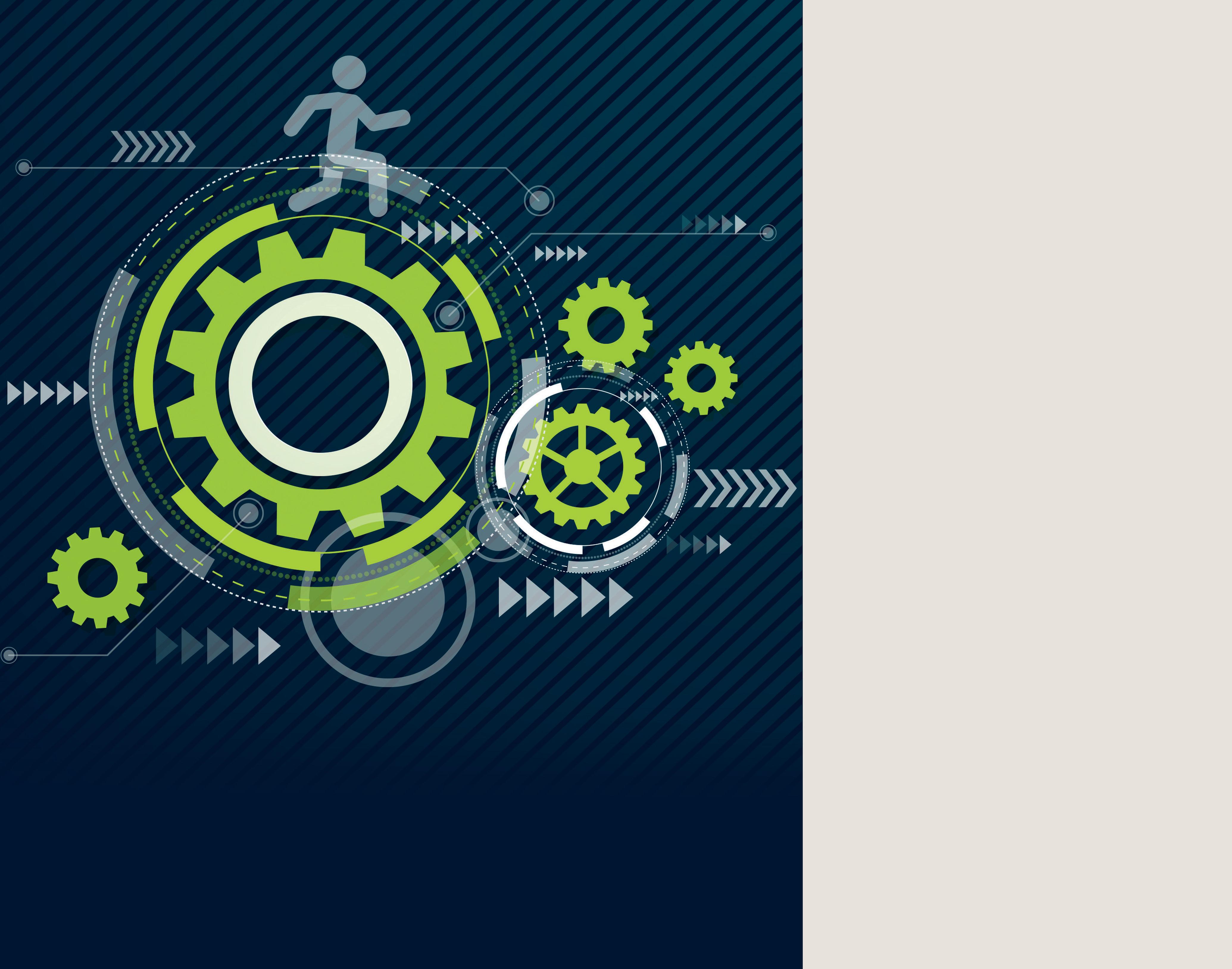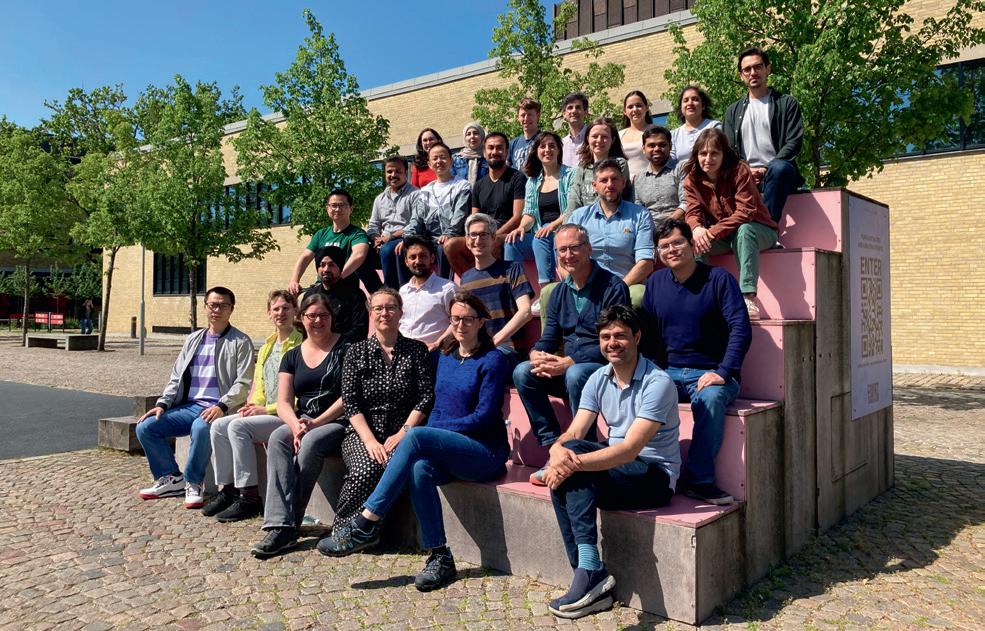EuroTech Alliance to support excellence in research
The EuroTech Universities Alliance brings together six leading European universities, all centres of excellence in science and technology. The EuroTechPostdoc2 programme offers fellowships at these universities to talented researchers, giving them the opportunity to explore their research interests and develop their skills, as Ingrid Vliegen explains.
The academic sector plays a central role in technological progress, with researchers both investigating fundamental questions and also developing the ideas and concepts that could lead to innovative new products. The EuroTechPostdoc2 programme was designed to give talented young scientists the opportunity to explore their interests, and the 70 fellows have been pursuing research projects across a range of topics. “We didn’t impose any limitations on topics in EuroTechPostdoc2 as long as they fitted within the research done within the Alliance. Some researchers are working in chemical or biomedical engineering, while others are working in industrial design,” outlines Ingrid Vliegen, Manager of the Programme. Over the course of the programme 70 fellowships have been awarded in two calls following a rigorous application process, with evaluators looking to balance scientific novelty with technological feasibility. “We’re always looking for new ideas, but it also had to be realistically achievable within the 24-month timeframe of the fellowship,” stresses Vliegen.
Research projects
This spans research across a variety of areas, including artificial intelligence, one-dimensional materials and antibiotic susceptibility. The fellows developed their own research projects, yet Vliegen says they also had the opportunity to explore related topics. “The fellows can take up new, exciting opportunities, as long as they are related to the primary area of interest. So the fellows have really been able to shape their own research project,” she says. While the fellows enjoy a high degree of academic freedom, they are also offered support by supervisors. “The fellows have a supervisor at their host institution, as well as a co-supervisor at a cohost institution, often in a different discipline. Most of the fellows have spent a few months at their co-host institutions, and they value the opportunity to broaden their knowledge,” continues Vliegen. “It can be very beneficial to ask for support and discuss ideas with other
(DTU).
researchers, as that helps the fellows refine and improve them.”
The fellows can also deepen their scientific knowledge by attending workshops and conferences dedicated to their specific field, which is central to a scientific career. But within the programme, training is also offered in more generic ‘soft’ skills, which hold wider relevance to researchers across different disciplines. “We provided training in skills we think are relevant for almost all the fellows over two intensive weeks of workshops,” she explains. One aspect of this is training in developing poster presentations, while other
and progress towards scientific leadership positions. Some of the current fellows may find permanent positions at their host institutions, providing strong foundations for further collaborations. “We have some people staying with us, while others are moving to other institutes, universities or industry, where they still collaborate with researchers at EuroTech universities,” continues Vliegen. “The EuroTechPostdoc2 programme has brought a lot of positive attention to the universities in the EuroTech alliance, but also trained 70 ambassadors for the years to come.”
“We didn’t impose any limitations on topics in EuroTechPostdoc2 as long as they fitted within the research done within the Alliance. Some researchers are working in chemical or biomedical engineering, while others are working in industrial design.”
communication skills were also covered in the workshops. “The fellows received training in how to make videos using cell phones, which can be very useful for outreach activities,” says Vliegen. “Training was also provided on for example grant writing, entrepreneurship and supervision. During the programme, we provided training in these skills that we believe are essential for the new generation of researchers.”
This will ultimately help the fellows take the next step in their careers, whether that’s in academia or outside,
EuroTech Universities Alliance
The EuroTechPostdoc2 programme itself is set to conclude by the end of 2025, yet the EuroTech alliance is here to stay. Researchers at the six universities involved have already collaborated on a variety of projects for over a decade, and will continue doing so. Alongside the networking and collaborative opportunities it provides, Vliegen says the alliance also helps strengthen the voice of the participating universities. “With a group of engineering universities working together we can influence decision-making at European level,” she explains.
EuroTechPostdoc2 programme fellowships
EuroTechPostdoc2 provided 70 fellowships to talented researchers over two calls. Three of the current fellows, Dr Eva Judy, Dr Alessandra Cappati and Dr Roman Pfugfelder, give us an insight into their research.
EU Researcher: What is the nature of your research in EuroTechPostdoc2?
Dr Alessandra Cappati (l’X): work in the CMS collaboration at CERN studying the Higgs boson. My project is focused on the four-lepton final state that I previously investigated, now I’m tackling new measurements. The fellowship gave me the possibility to conduct new analyses to investigate the scalar sector in depth.
EUR: What progress has been made in learning about the properties of the Higgs boson?
AC: With further runs of the Large Hadron Collider we have collected more data on the Higgs Boson at higher energies, giving us access to rarer processes. We have found very good agreement with the properties predicted by the standard model, but we are also searching for possible signs of new physics relying on the growing precision of our measurements.
EUR: How has being part of the programme helped you in conducting this research?
AC: Many common activities have been organised, like the bootcamps and courses on soft skills. The programme has helped bring together people from different fields, giving us the opportunity to share our experiences and develop a sense of community.
EUR: Does your project in EuroTechPostdoc2 build on your previous research into drug delivery?
Dr Eva Judy (TU/e): Yes, during my PhD I worked with more surfactant-based drug delivery systems. I realised that if I could develop a more biocompatible system, a more targeted drug delivery method, it would increase the efficiency and applicability of the product.
EUR: How are you developing a more biocompatible drug delivery system?
EJ: We are making particles of human serum albumin (HSA), a constituent part of blood. There is a higher acceptance rate of such biologicallymade nanoparticles. We create nanoparticles, and on the surface we conjugate them using specific peptide sequences we are synthesising. We have synthesized specific peptide sequences which recognize a protein overexpressed in particular cancerous cells – for example, breast cancer cells over-express a protein known as neuropilin-1. We also synthesize more general pH based peptide sequences. Because of rapid division in cancer cells, they have a slightly lower pH than normal cells – the more general peptide sequences recognise these acidic tumour environments and change their conformation. Thus creating a target oriented delivery system.
EuroTechPostdoc2
The EuroTechPostdoc2 programme
Project Objectives
EUR: Do you plan to continue pursuing this research? What are your plans for the future?
EJ: I plan to continue working in the same area. Currently I’m working more on the physico-chemical levels, and I would like to shift to the in vivo level.
EUR: How important is being part of a network in this respect? Does that help you learn about related areas?
EJ: My co-supervisor in Munich is a physicist, while my expertise lies more on the chemical synthesis part. With the support of my supervisors I have extended my network and gained access to different facilities where I can analyse biomaterials.
EUR: What is the main focus of your research within EuroTechPostdoc2?
Dr Roman Pfugfelder (TUM): I’ve been looking at a special type of occlusion in computer vision, called fragmented occlusion, which occurs especially in natural environments like forests. When you look through foliage there are lots of gaps between leaves, and it can be very hard to develop algorithms capable of recognising objects behind a bush or tree. I considered this problem from a machine point of view in my fellowship.
EUR: How have you been approaching this work?
RP: The assumption is that it is possible to gather information on all parts of an object’s surface by considering multiple images of it while it’s moving. At certain points different parts of an image are occluded, then when the object moves and we acquire further images, they become un-occluded. The idea is that through the whole sequence of images all the information is present. The question is how to combine those images, to infer information from this sequence, to perform this recognition task.
I’m taking a video and applying an algorithm which generates a single image, where the object becomes recognisable. Then I can apply standard computer vision methods in the area of object recognition.
EUR: How would you reflect on your EuroTech fellowship? Has it been a positive experience?
RP: I was very thankful to receive this fellowship, as it has allowed me to return to academia after a career in the applied research sector. I’m a computer vision scientist, and over the two years of the fellowship I’ve been able to study the topic in more depth and develop some new solutions and approaches.
Within the EuroTechPostdoc2 programme, the universities of the EuroTech Universities Alliance offer seventy Marie Skłodowska-Curie fellowships to experienced high-potential researchers. Besides giving the fellows the freedom to establish their own research lines, the programme provides exceptional training opportunities to prepare the fellows for a future as part of the new generation of scientific leaders, within and outside of academia.
Project Funding
This project has received funding from the European Union’s Horizon 2020 research and innovation programme under the Marie Skłodowska-Curie grant agreement no. 899987.
Project Partners
Four universities within the EuroTech Universities Alliance act as Host Institution:
• Technical University of Denmark (DTU),
• École Polytechnique in Paris (l’X),
• Eindhoven University of Technology (TU/e)
• Technical University of Munich (TUM).
All six universities within the EuroTech Universities Alliance act as Co-host Institution.
The four universities listed above, but also;
• École Polytechnique Fédérale de Lausanne (EPFL)
• Technion Israel Institute of Technology (the Technion)
Contact Details
Dr.ir. Ingrid Vliegen Programme Manager EuroTechPostdoc2 Team lead RSO Project Management Office P.O. Box 513, 5600 MB Eindhoven, The Netherlands
T: +31(0)40 247 4332
E: i.m.h.vliegen@tue.nl W: https://postdoc2.eurotech-universities.eu/
Ingrid Vliegen obtained her Ph.D degree in 2009 from Eindhoven University of Technology (TU/e). Afterwards she joined Twente University as an Assistant Professor. In 2016, Ingrid concluded that she enjoyed research management more than doing research herself and returned to TU/e as a support professional. Since 2020, Ingrid is the Program Manager of EuroTechPostdoc2. Starting 2023, Ingrid is also leading the TU/e Project Management Office.
EuroTechPostdoc2 fellows during a bootcamp – an intensive workshop week -
Ingrid Vliegen








